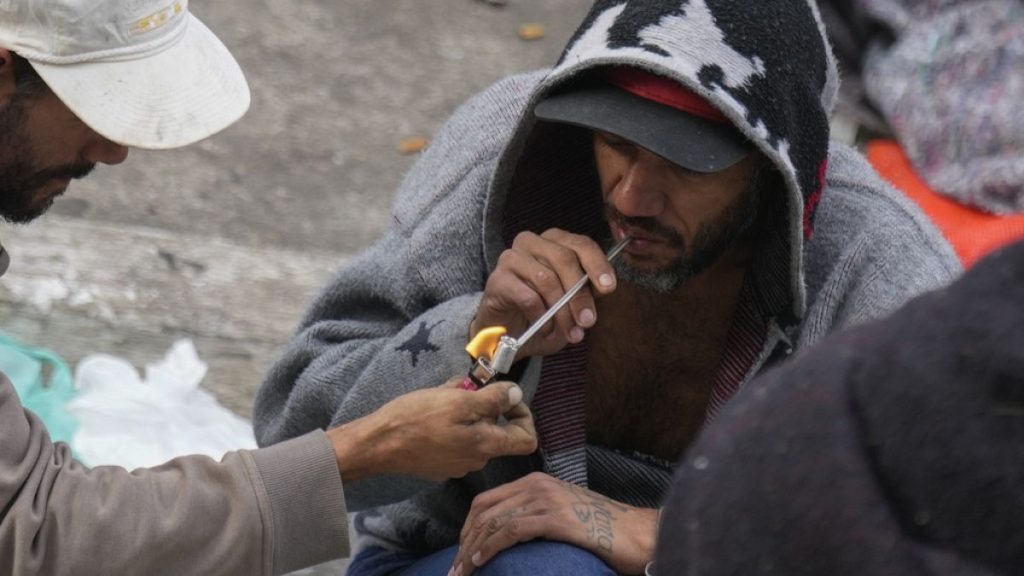GATE, a safe drug consumption space in Brussels, has been successful in providing refuge and hope to the increasing number of crack cocaine addicts in the city. The center allows homeless users to safely consume their own drugs, offering activities and access to medical support. However, GATE does not provide accommodation, so when the center closes, users must return to the streets. Bruno Valkeneers, a social worker at GATE, explains that the majority of users are heavy cocaine and crack addicts who use drugs as a means of coping with their challenging situations.
The success of GATE has led to plans for expansion with a new centre set to open next year due to high demand. The current center has become the only place in Brussels where homeless drug users receive a warm welcome and access to much-needed support. Valkeneers highlights the need for more investment and cooperation to provide residential care for the growing number of homeless individuals in the city. The Belgian government is working closely with the Dutch to combat drug cartels, particularly those using the Antwerp port as a gateway for drugs from Ecuador. With an illicit drug market worth €30 billion annually and increasingly violent drug traffickers, the challenge is significant.
The safe space provided by GATE allows drug users to temporarily escape the hardships of the streets and receive the care and support they need. The center offers activities such as board games and cooking, as well as access to doctors, nurses, and mental health support. However, while GATE provides a reprieve for users during its operating hours, they must eventually return to the streets when the center closes. Most users at GATE have heavy addictions to cocaine and crack, with many citing their drug use as a way to forget about their difficult living situations.
GATE has become a vital resource for homeless drug users in Brussels, providing a level of care and support that is not available elsewhere in the city. Users are able to consume their own drugs in a safe environment and receive medical attention, activities, and a welcoming atmosphere. The success of GATE has led to plans for expansion, with a new center set to open next year to meet the high demand for its services. Valkeneers emphasizes that GATE is just one part of the solution, and more investment and cooperation are needed to address the growing issue of homelessness and drug addiction in Brussels.
The Belgian government is working with the Dutch to combat drug cartels, particularly those smuggling drugs through the Antwerp port from Ecuador. The illicit drug market in Europe is worth €30 billion annually, posing a significant challenge for law enforcement agencies. Drug traffickers are becoming increasingly violent, making the fight against drug smuggling even more difficult. GATE serves as a crucial frontline service for homeless drug users in Brussels, offering a safe space for them to receive care and support while also highlighting the need for broader systemic changes to address the root causes of drug addiction and homelessness in the city.
Overall, GATE has been successful in providing a safe and supportive environment for homeless drug users in Brussels, giving them a sense of refuge and hope in the midst of difficult circumstances. The center offers a range of services, including medical care and activities, to help users cope with their addiction and living situations. However, the issue of homelessness and drug addiction in Brussels requires a comprehensive and collaborative approach involving more investment, cooperation, and support from government agencies and the community. As GATE plans to expand its services, it highlights the need for additional resources to address the complex challenges faced by homeless individuals struggling with drug addiction in the city.













